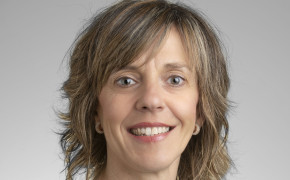Integration of life cycle thinking and methodologies as part of the program of an official master´s Degree in Circular Economy (CE).
The recent emergence of academic interest in circular economy is a clear fact, and the master gives answer to this interest. One of the specific competences to achieve with this master consists of “understanding the life cycle and the eco-design basis”.
Contents related to life cycle thinking and methodologies are included in the following subjects of the master:
1. Introduction to CE: carbon footprint, environmental footprint, water footprint, life cycle analysis, cradle to cradle.
2. Ecoinnovation and sectorial management: life cycle analysis tools, analysis of material flows between sectors, material cycle closure.
3. Designing for CE: Life cycle analysis. Quantification of the environmental impacts of the life cycle of a product / industrial process and subsequent redesign. Modeling of the product / process life cycle in the software. ISO 14040. Definition of functional unit. Selection of recommended environmental indicators in the European Union. Characterization factors for the transformation of life cycle inputs and outputs to environmental indicators. Life cycle inventory and computer software databases. Reliability in databases. Analysis and interpretation of the results obtained with the software. Modeling sensitivity analysis. Normalized and weighing of the results. Ecolabelling
4. Industrial ecology and logistics: analysis tools in industrial ecology: material flow analysis, life cycle analysis (products, processes and infrastructures).
Resources needed
The master is organized by Campus Iberus, which is formed by the public universities of Aragon, La Rioja, Navarra, and Lleida (Ebro Valley).
It is taught by staff from these universities, and by experts from business world.
Evidence of success
This is a new master launched in the course 2021-2022. 15 people have enrolled this first promotion, out of which 13 have previous work experience. 3 come from social sciences, 4 from environmental sciences, 3 from Chemistry, 5 from engineering.
It is hoped that the training of experts in circular economy will allow the promotion of sustainable technologies in the Ebro Valley and, therefore, innovation and research for the adaptation of companies and institutions to the circular economy.
Difficulties encountered
The implementation of the master's degree constitutes a very ambitious and complex objective for Campus Iberus, due to the foreseeable difficulties of coordination between four universities and between centers of different macro-areas of knowledge.
Potential for learning or transfer
The purpose of the master is to train experts, raise awareness of the complexity of the management of material and energy flows and provide them with the skills to implement the principles of circular economy in companies and public and private institutions. Soon it will be necessary to have experts with extensive training capable of identifying all the complexity of the present environmental problems. Currently, there are very few specialists of this type in the world, so it is necessary to develop quality multidisciplinary training.
A great interest for other regions can be expected to promote the creation of similar masters.
Tags: Circular economy, Education, Life cycle, Skills, Sustainable development, Training








